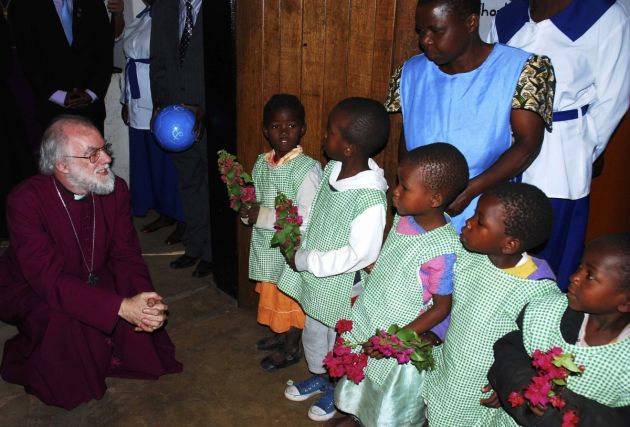Former Anglican leader lives on $1.70 a day for a week; asks others to follow

The former Archbishop of Canterbury, Rowan Williams, has lived "below the line" for a week to help raise poverty-fighting funds for Christian Aid, the British charity for which he is the chair.
He is urging others to follow him by spending just one British pound ($1.70) a day for five days on all food and drink, for Christian Aid Week from May 11 to 17.
It was not easy for the former spiritual leader of the Church of England and primate of the Anglican Communion to plan meals and to create a nutritionally balanced diet on so little money.
"There's not much variety. You have to rely heavily on cheap staples so eating becomes less of a pleasure and more about trying to nourish yourself which is very difficult on just one pound.
"Getting the ideal five-a-day (fruit and vegetables) is more or less impossible," said Williams.
The money raised by sponsoring participants will help to eradicate extreme poverty globally, the UK-based think tank Ekklesia reported.
Williams took up the challenge to test himself and to show solidarity with the 1.2 billion people around the world who go to bed hungry every night.
"I hope people will sign up to Live Below the Line because exploring this process of living on just one pound a day, sharing the experience of some of the most challenged people in the world, is really a way of discovering something about yourself and about the world we live in," he said on the Christian Aid website.
In a parliamentary lecture to launch the week, Williams highlighted the role that inequality plays in provoking violence.
He told an invited audience at Westminster that redistributing power is crucial if violence, one of the key drivers of global poverty, is to be tackled successfully.
Williams' address added to others speaking out on the issue, including U.S. President Barack Obama and French economist Thomas Piketty, who are increasingly concerned at the threat of growing inequality on social cohesion, prosperity and democracy, Christian Aid said on its website.
"The truth is that poverty and a sense of powerlessness are regularly among the major drivers of violence; while violence in turn is a major driver of poverty.
"So what we must do is recognise the vicious circle here, and ask where and how we break it," said Williams who was the Archbishop of Canterbury from December 2002 to December 2012.
In his speech Williams spoke he focussed on violence and discrimination against women.
"The dehumanizing treatment of women often reflects attempts by economically or socially disempowered males to assert authority; it signals a contempt towards what women do to sustain social goods.
"It limits or even destroys an immensely significant capacity for transmitting to a new generation the values and possibilities of human culture."
